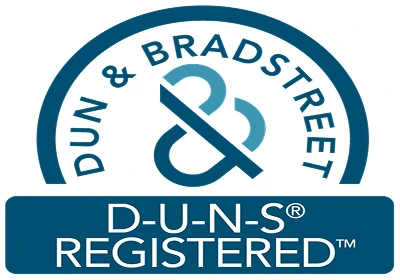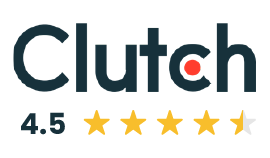Pharmaceutical Published Insights
Published Date : 07 Feb, 2026
Global diabetic kidney disease market is estimated to be valued at USD 3.18 Bn in 2025 and is expected to exhibit a CAGR of 5.0% during the forecast period (2025-2032). Diabetic kidney disease (DKD) is a condition in which the kidneys are damaged due to long-standin... View more
Published Date : 07 Feb, 2026
Global cold laser therapy market is estimated to be valued at USD 123.7 Mn in 2025, and is expected to exhibit a CAGR of 4.7% during the forecast period (2025-2032). Cold laser therapy, also known as low-level laser therapy (LLLT), is a form of light therapy that us... View more
Published Date : 07 Feb, 2026
The global multi dose drug vial adapters market is estimated to be valued at US$ 1,182.6 Mn in 2025 and is expected to exhibit a CAGR of 7.1% during the forecast period (2025-2032). Multi dose drug vial adapters are devices that allow the safe administration of medi... View more
Published Date : 07 Feb, 2026
The global dyspareunia treatment market is estimated to be valued at USD 790.4 Mn in 2025 and is expected to exhibit a CAGR of 4.8% during the forecast period (2025-2032). Dyspareunia, or painful sexual intercourse, is a prevalent issue that affects women globally. ... View more
Published Date : 07 Feb, 2026
The global animal growth promoters performance enhancers market is estimated to be valued at USD 18.39 Bn in 2025 and is expected to exhibit a CAGR of 6.1% during the forecast period (2025-2032). Animal growth promoters and performance enhancers refer to feed additi... View more
Published Date : 07 Feb, 2026
Global hemostasis/coagulation analyzer market is estimated to be valued at USD 4.62 Bn in 2025 and is expected to exhibit a CAGR of 6.0% during the forecast period (2025-2032). The hemostasis/coagulation analyzer market has been growing at a steady rate over the pas... View more
Published Date : 07 Feb, 2026
Global geriatric medicines market is estimated to be valued at USD 1,073.13 Bn in 2025 and is expected to reach USD 1,701.91 Bn by 2032, exhibiting a compound annual growth rate (CAGR) of 6.8% from 2025 to 2032. Geriatric medicines refer to the medical products th... View more
Published Date : 07 Feb, 2026
Global iron deficiency anemia treatment market is estimated to be valued at US$ 13.17 Bn in 2025 and is expected to exhibit a CAGR of 8.8% during the forecast period (2025-2032). Iron deficiency anemia is a very common nutritional deficiency that affects over a bill... View more
Published Date : 07 Feb, 2026
Global tobramycin eye drop market is estimated to be valued at USD 1,164.7 Mn in 2025 and is expected to exhibit a CAGR of 14.3% during the forecast period (2025-2032). Tobramycin eye drops are topical aminoglycoside antibiotics that are used for treating external e... View more
Published Date : 07 Feb, 2026
Global intravenous (IV) ibuprofen market is estimated to be valued at USD 7.41 Bn in 2025 and is expected to exhibit a CAGR of 7% during the forecast period (2025-2032). Intravenous (IV) ibuprofen is used for pain relief and fever reduction for several decades. As a... View more
Published Date : 07 Feb, 2026
The global gastric motility disorder drug market is estimated to be valued at USD 60.88 Bn in 2025 and is expected to exhibit a CAGR of 5.6% during the forecast period (2025-2032). Gastric motility disorder refers to conditions wherein the stomach takes more or less... View more
Published Date : 07 Feb, 2026
Physiotherapy services market is estimated to be valued at USD 58.27 Bn in 2025 and is expected to reach USD 84.83 Bn by 2032, growing at a compound annual growth rate (CAGR) of 5.5% from 2025 to 2032. Physiotherapy is a crucia... View more
Published Date : 07 Feb, 2026
The pharmaceutical intermediates market is estimated to be valued at USD 47.30 billion in 2025 and is expected to reach USD 82.70 billion by 2032, growing at a compound annual growth rate (CAGR) of 8.3% from 2025 to 2032. The p... View more
Published Date : 07 Feb, 2026
The global synthetic biosensors market is estimated to be valued at USD 30.04 Bn in 2025 and is expected to exhibit a CAGR of 7.5% during the forecast period (2025-2032). Synthetic biosensors have emerged as an important tool in biotechnology and biomedicine. ... View more
Published Date : 07 Feb, 2026
The global type 2 diabetes market is estimated to be valued at USD 43.02 BN in 2025 and is expected to exhibit a CAGR of 7.9% during the forecast period (2025-2032). Type 2 diabetes is a chronic metabolic disease characterized by high blood sugar levels due to insul... View more
Published Date : 07 Feb, 2026
The global topical drug delivery market is estimated to be valued at USD 136.53 BN in 2025 and is expected to exhibit a CAGR of 9.3% during the forecast period (2025-2032). Topical drug delivery refers to the administration of therapeutic compounds directly to the s... View more
Published Date : 07 Feb, 2026
Global type 1 diabetes market is estimated to be valued at USD 16.97 BN in 2025 and is expected to exhibit a CAGR of 6.4% during the forecast period (2025-2032). Type 1 diabetes is an autoimmune disease where the pancreas produces little or no insulin. It results fr... View more
Published Date : 07 Feb, 2026
The global pharmaceutical chemicals market is estimated to be valued at USD 147.97 Bn in 2025 and is expected to exhibit a CAGR of 7.4% during the forecast period (2025-2032). Pharmaceutical chemicals are chemical substances or a combination of substances that are u... View more





